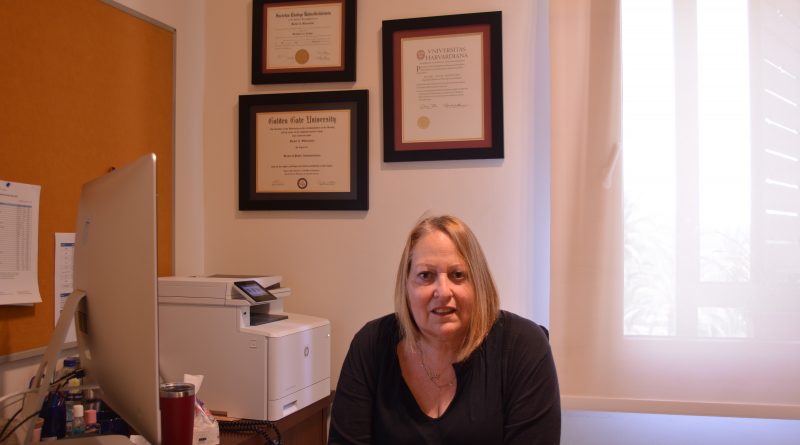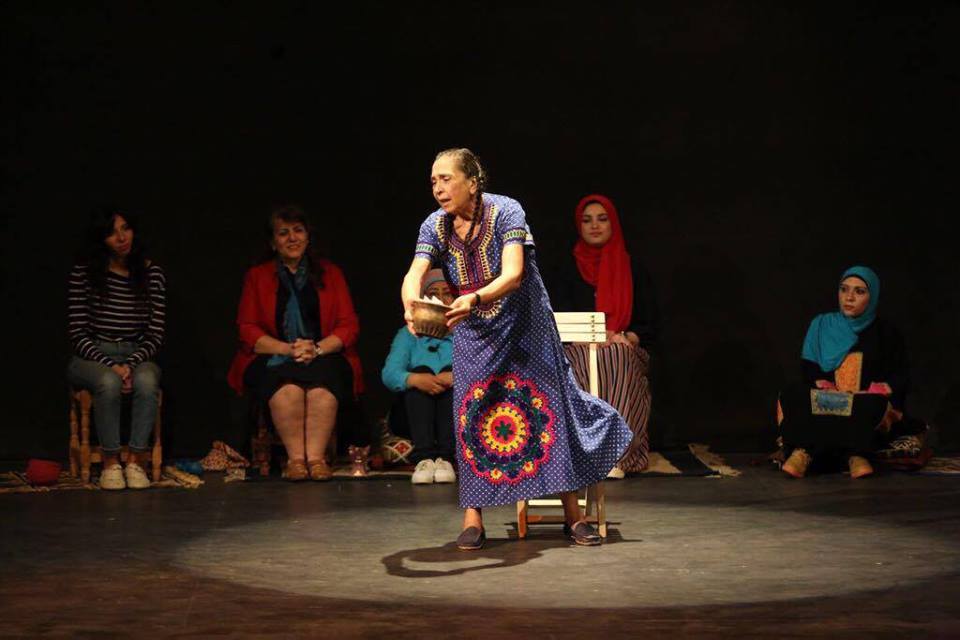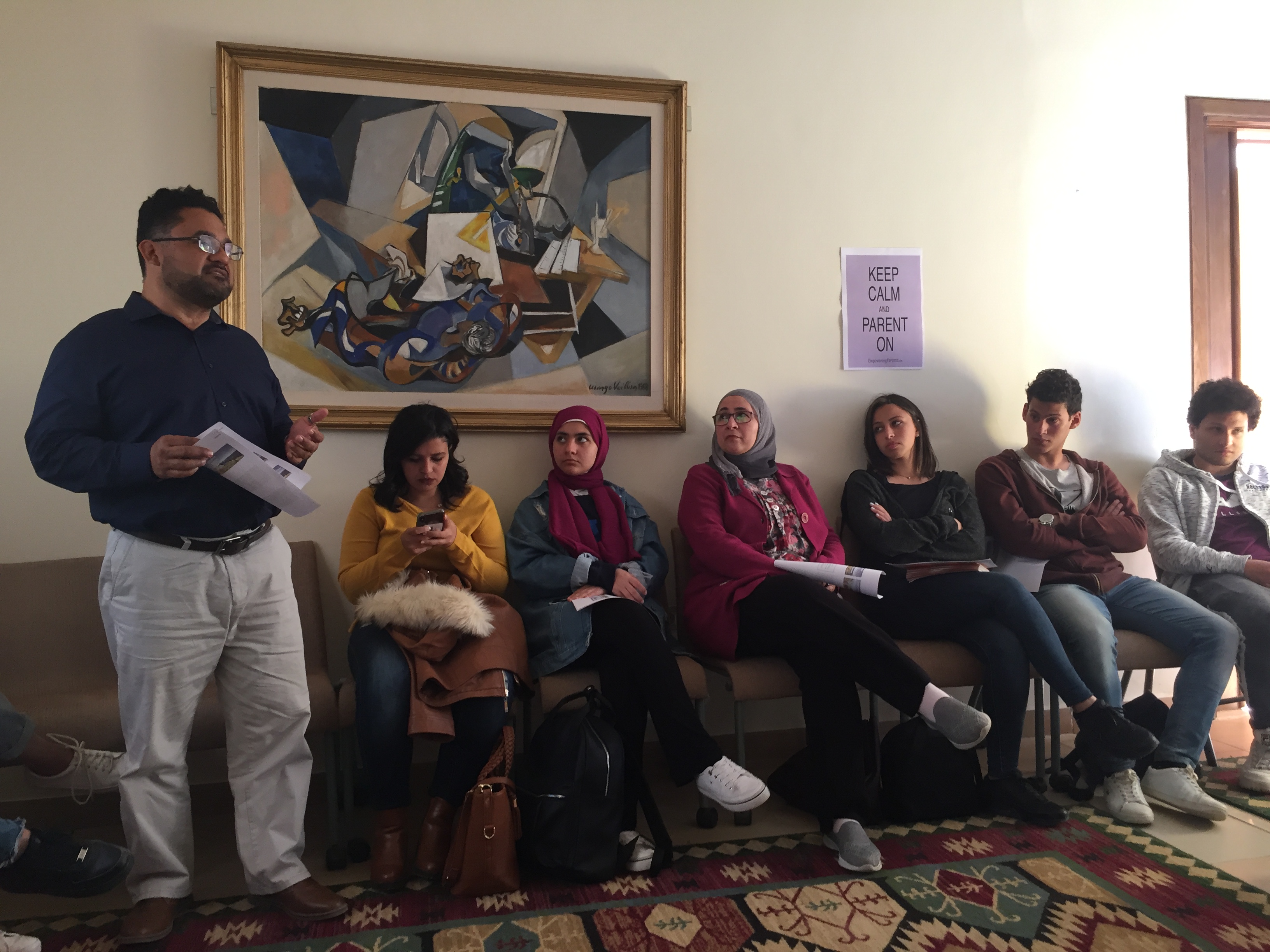Need a Problem Solved on Campus? Meet Rachel Awad
By: Salma Abouelwafa
@salmaabouelwafa
You might not have heard about Rachel Awad, but talk to her for a few minutes and you quickly figure out how important her work is at AUC.
As Senior Director of Academic Affairs Projects in the Office of the Provost, Awad has dedicated the past few years to completing her mission to empower people through transformative education.
“I am a firm believer that education is the path to changing lives,” Awad says.
She overlooks and supervises multiple academic projects, with the latest being the return to campus.
“The COVID-19 campus reopening task force was essentially across the university; anything and everything that we were doing in response to COVID from the time that we came back to campus, so that’s the biggest project that I’ve been involved in,” said Awad.
Awad is also responsible for organizing commencement, a task that came her way after Vice-President for Student Life Deena Boraie’s retirement.
Awad sees this as an opportunity for collective community engagement.
For the spring 2022 ceremonies, Awad established a commencement committee, including representatives from the Registrar, Campus Planning, Facilities, ACTS, Communications, University Events, the Offices of the President and the Provost, and the Office of Student Life.
“With efficient planning and coordination, our goal is to give our graduating students and their families a meaningful and memorable experience,” she said.
With over 25 years of experience from working as a headmistress in an Egyptian language school to a senior manager in Qatar’s Supreme Education Council to working as an associate director of employability across the Middle East, Awad has come to realize the importance of a liberal arts education.
“The public school system here is still based on a very old ways of learning, old pedagogies and I understand there are attempts to change that but I think [there should be] a shift away from memorization toward student-center learning where students are encouraged to ask questions and encouraged to think outside the box, the earlier that kind of thinking starts, the better,” Awad said.
Awad further noted that reliance on private tutoring may suggest that there is “something missing in schools” and results in so much time spent in class and private lessons, thus leaving school kids stressed and deprived from a social life.
“I am a really firm believer that no matter what technical skills you’re studying… to have a liberal arts perspective, to learn critical problem-solving skills, communication skills, leadership skills, is so important,” Awad told The Caravan.
But having students appreciate a liberal arts curriculum also requires a similar commitment from faculty, and enhancing new faculty orientation programs becomes critical to that end.
Awad is currently working on making the program more engaging, practical and meaningful to new faculty – who come from all over the world and with different educational backgrounds – become accustomed to the shift to AUC.
“It [orientation program] used to be just people coming and presenting and presenting and presenting. I am sure you can imagine after a few days how old that gets, no one is paying attention. So, we really changed the model to be much more interactive,” Awad said.
The orientation now revolves around discussions and sharing of insights rather than lengthy presentations. Faculty members respond to questions and inquiries from the newcomers to better understand AUC dynamics, classroom requirements, how to access research funds, and make best use of library archives, among other scholastic resources.
To that end, the orientation program invites new faculty feedback and input to cater to their needs and curiosities.
Perhaps it’s because of working closely with new – as well as current – faculty to help them overcome obstacles that Awad has earned the reputation of being a problem solver.
“The buck stops with Rachel, in all honesty,” said one long-time administrator who preferred to remain anonymous.
“She’s made the leadership forums all the more engaging and personable, brought faculty and administrators together by building rapport and generally been available even beyond normal working hours,” the administrator said.
“When no one else can help, I turn to Rachel,” the administrator added.
But does this leave Awad any personal time away from work?
Awad admitted that she does work beyond traditional office hours, but said that she also tries hard to achieve some level of work-life balance.
“If I’m working on weekends, evenings or when I’m on leave, this is usually because there is a situation that cannot wait,” she said.
Some of these situations may include emails which require the Provost’s urgent attention.
“In the Office of the Provost we should be extremely responsive to faculty and student needs. In the case of emergencies, this means being available to respond or knowing who to contact. At the same time, many requests can be handled during normal working hours, and so I do my best to address these accordingly.”




